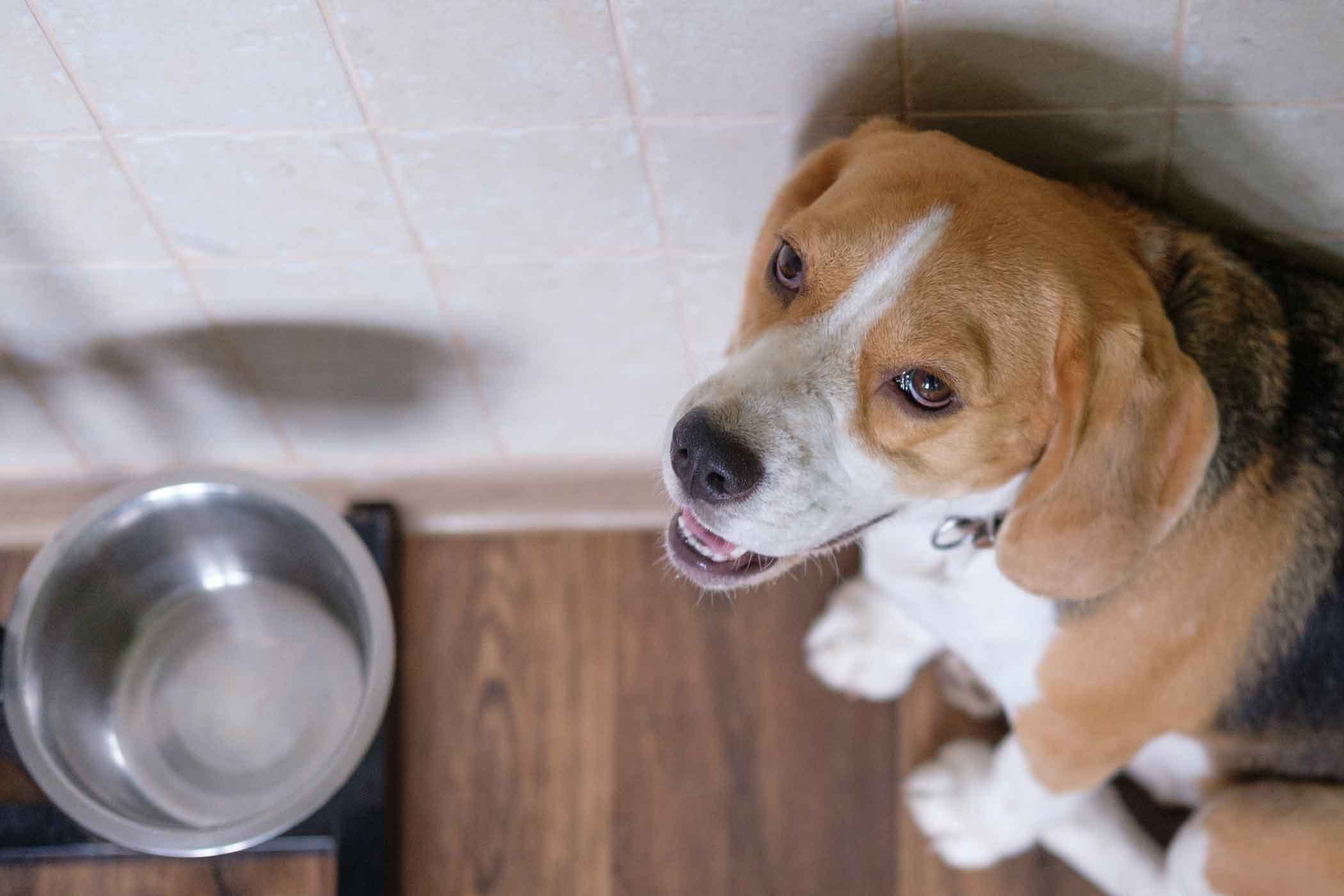Why Does My Dog Bark At His Food
If you’ve ever wondered why your dog barks at his food, you’re not alone. It’s a question that many dog owners have, but the answer isn’t always simple. There are a number of reasons why dogs bark at their food, and it’s important to understand the cause in order to address the issue. In this blog post, we’ll explore some of the most common reasons dogs bark at their food and what you can do to stop it.
Introducing Your Dog to New Foods
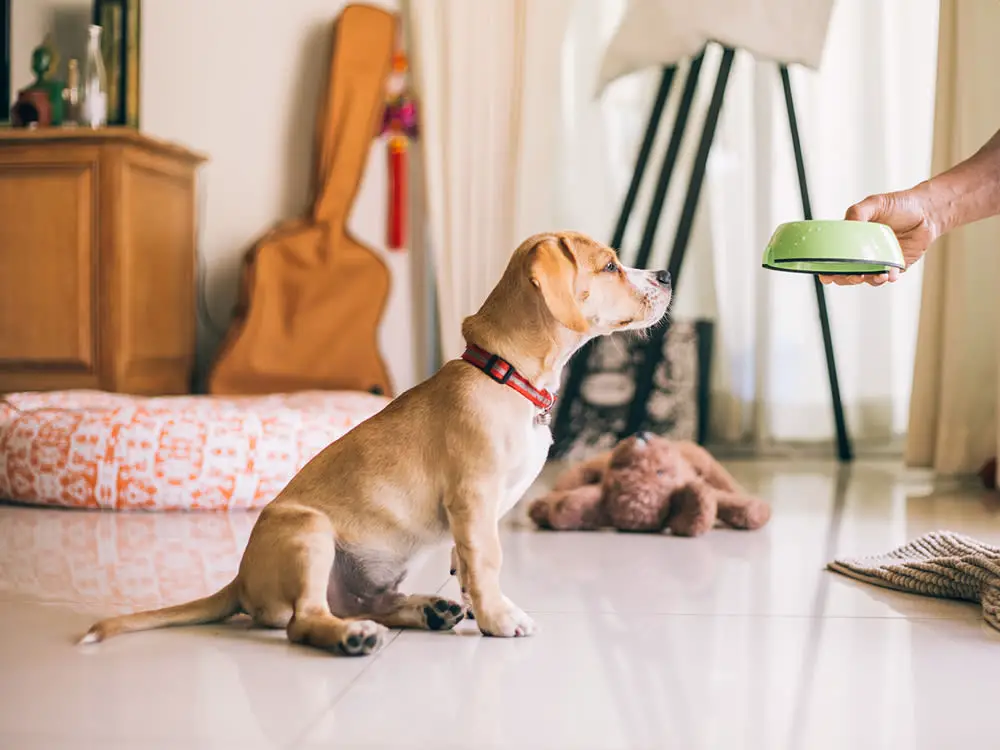
If your dog is anything like mine, he’s a little bit suspicious of new things. It can be tough to get him to try something new, whether it’s a toy or a food. The key is to make sure that he knows the new item is safe and won’t hurt him.
Here are a few tips for introducing your dog to new foods:
1. Start with small amounts. Give him just a few bites of the new food at first so he doesn’t get overwhelmed.
2. Add some flavor. Mix the new food with something he already likes so he’s more likely to eat it. You can also try adding some chicken broth or another tasty treat to make it more appealing.
3. Be patient. It might take a few tries before your dog finally decides to give the new food a try. Don’t give up and eventually he’ll come around!
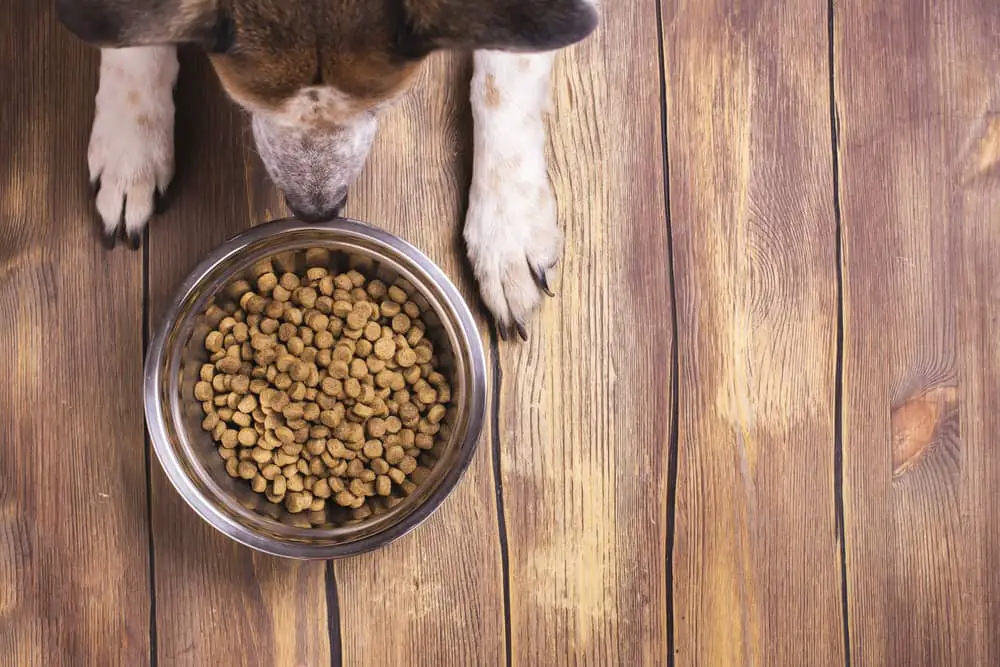
The Fear Factor
There’s a common misconception that dogs bark at their food because they’re afraid of it. However, this is usually not the case. Dogs bark at their food for a variety of reasons, including excitement, boredom, and stress.
If your dog is afraid of his food, he may display some common fear behaviors, such as cowering or shaking. He may also refuse to eat altogether. If you think your dog is afraid of his food, talk to your veterinarian or a behaviorist to help him overcome his fear.
In most cases, however, dogs bark at their food because they’re excited or bored. If your dog is prone to barking at his food, try to keep mealtimes calm and relaxed. Avoid playing with your dog while he’s eating, and don’t give him any attention until he’s calm and quiet. If necessary, you can feed your dog in a separate room from the rest of the family to avoid stressful mealtimes.
Whatever the reason for your dog’s barking, it’s important to remain calm and consistent in your response. Yelling or punishing your dog will only make the problem worse. If you need help managing your dog’s barking behavior, talk to your veterinarian or a qualified animal behaviorist.
Anxiety and Stress
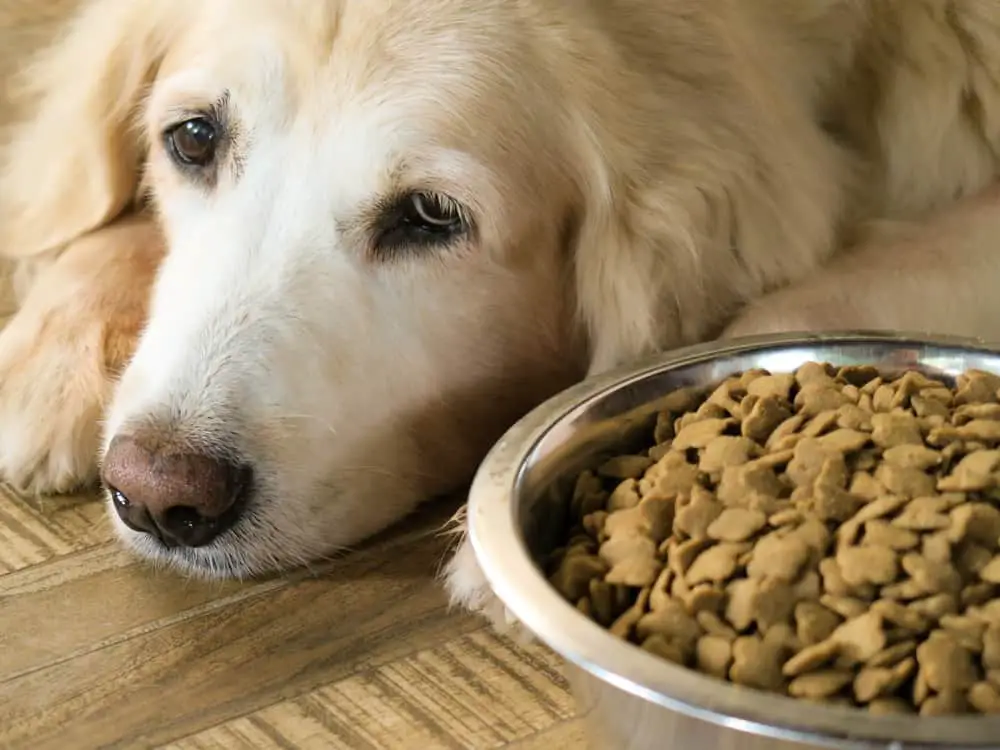
There are a number of reasons that your dog may be barking at his food. It could be that he is anxious or stressed, which is common in dogs. If this is the case, there are a few things you can do to help your dog feel more relaxed and comfortable around his food.
First, make sure that you are not overfeeding your dog. Dogs who are overweight tend to be more prone to anxiety and stress. If you think your dog may be overweight, talk to your veterinarian about ways to help him lose weight safely.
Second, try serving your dog’s food in a puzzle feeder or slow-feed bowl. This will help him eat more slowly and calmly, and reduce his overall stress level.
Finally, make sure that you are providing your dog with plenty of mental and physical exercise every day. A tired dog is a happy dog, and exercise can help to alleviate stress and anxiety.
Separation Anxiety
Dogs are social animals that thrive on companionship. When they’re left alone, it’s not uncommon for them to experience separation anxiety. This can manifest in a number of ways, including barking at their food.
There are a few possible reasons why your dog may be barking at his food when you’re not around. One is that he’s simply seeking attention and wants you to come back. Another is that he’s feeling anxious and stressed about being separated from you. And finally, he may be experiencing true hunger because he wasn’t fed on schedule or given enough food earlier in the day.
If your dog is barking at his food because he’s anxious or stressed, there are a few things you can do to help him feel more comfortable. Make sure he has plenty of toys and chew bones to keep him occupied while you’re gone. You might also want to try leaving him with a piece of your clothing that smells like you. Finally, make sure his crate is comfortable and cozy so he feels like he has a safe space to retreat to when he needs it.
If your dog is barking at his food because he’s truly hungry, the solution is simple: make sure he’s fed on schedule and give him enough food throughout the day. If you’re gone for long periods of time, consider hiring a dog sitter or dog walker to help take care of him while you’re away.
How to Help Your Dog Adjust to New Foods
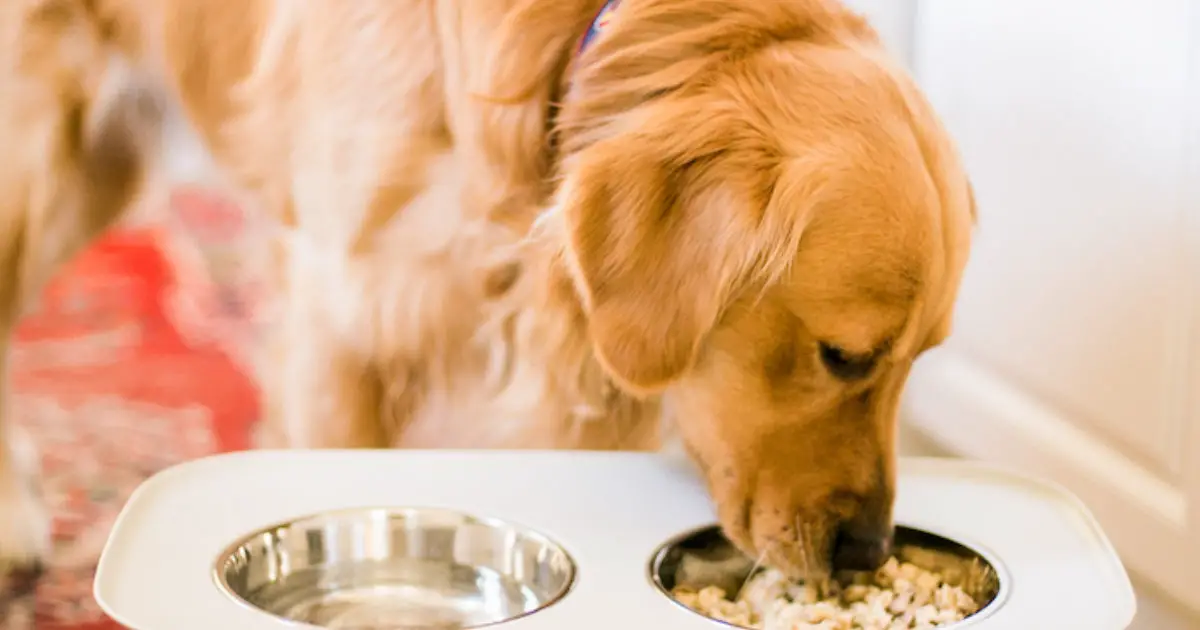
If your dog is anything like mine, he’s probably a little bit picky when it comes to his food. I’ve had to learn the hard way that just because I think something looks and smells good doesn’t necessarily mean that my dog will feel the same way.
If you’re thinking of changing up your dog’s food or introducing some new foods into his diet, here are a few things to keep in mind to help him adjust:
1. Start with small amounts of the new food mixed in with his regular food. gradually increase the amount of new food until he’s eating mostly the new stuff.
2. Be patient! It may take a little while for your dog to get used to the new taste and texture of his food.
3. If your dog is really resistant to trying new foods, try adding some tasty toppings or mix-ins to make it more appealing. Things like shredded cheese, peanut butter, or bacon bits can usually do the trick!
4. Finally, don’t forget that rewards always help! Whenever your dog takes a step in the right direction – even if it’s just trying a few bites of something new – be sure to give him tons of praise and maybe even a treat as well.
Final Thoughts
There is no one answer to the question of why your dog barks at his food. It could be that he’s trying to get your attention, or it could be a sign of excitement or anxiety. If your dog is barking excessively, it’s important to consult with a veterinarian or behaviorist to rule out any possible medical causes. In most cases, however, a little bit of training and patience will go a long way in getting your dog to stop barking at his food.

